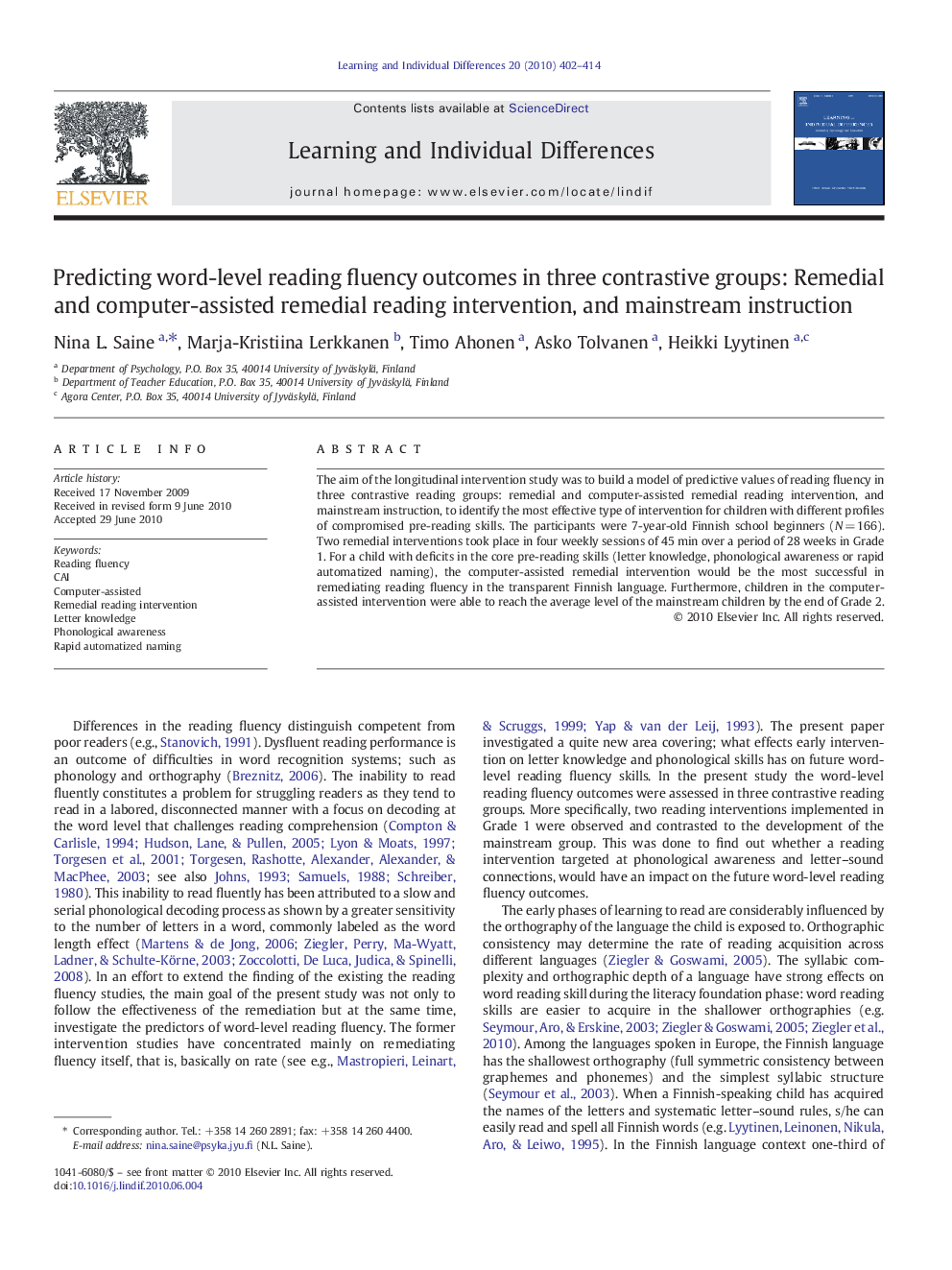| Article ID | Journal | Published Year | Pages | File Type |
|---|---|---|---|---|
| 365044 | Learning and Individual Differences | 2010 | 13 Pages |
The aim of the longitudinal intervention study was to build a model of predictive values of reading fluency in three contrastive reading groups: remedial and computer-assisted remedial reading intervention, and mainstream instruction, to identify the most effective type of intervention for children with different profiles of compromised pre-reading skills. The participants were 7-year-old Finnish school beginners (N = 166). Two remedial interventions took place in four weekly sessions of 45 min over a period of 28 weeks in Grade 1. For a child with deficits in the core pre-reading skills (letter knowledge, phonological awareness or rapid automatized naming), the computer-assisted remedial intervention would be the most successful in remediating reading fluency in the transparent Finnish language. Furthermore, children in the computer-assisted intervention were able to reach the average level of the mainstream children by the end of Grade 2.
Research highlights► School beginners, at risk for reading failure, benefited from a remedial reading intervention that was enriched with computer-assisted reading training GraphoGame. Drilling in the computer-controlled learning environment, 15-min at the time was required to boost the acquisition of the reading fluency skills. ► Children in the computer-assisted remedial reading intervention (CARRI) reached the average level of the mainstreamers by the end of Grade 2. On the other hand, results revealed that the reading fluency performance in the regular remedial reading group (RRI) was stable and that the at-risk children in the RRI group did not develop in reading fluency from Grade 1 till the end of Grade 2. ► If risk for RDs was identified, it was possible to avoid the compromised development of reading skills, including fluency. ► School entrance assessments should be regarded as valuable predictors of future reading fluency outcomes. Screening or school entrance assessments can help class teachers, remedial reading specialists (i.e., special educators) and school psychologist to decide which students require remedial reading training, and more distinctively what kind of remedial practices are likely to support an individual child with specific pre-reading profiles. Furthermore, individual risk profiles based on core pre-reading skills may provide valuable knowledge both about children's future reading development, and about where remedial reading intervention resources can most efficiently be applied. ► Computer-assisted intervention programs such as GraphoGame are important instruments in the remedial teaching of children at risk for reading failure and, furthermore in contributing to successful and cost-effective remedial practices.
